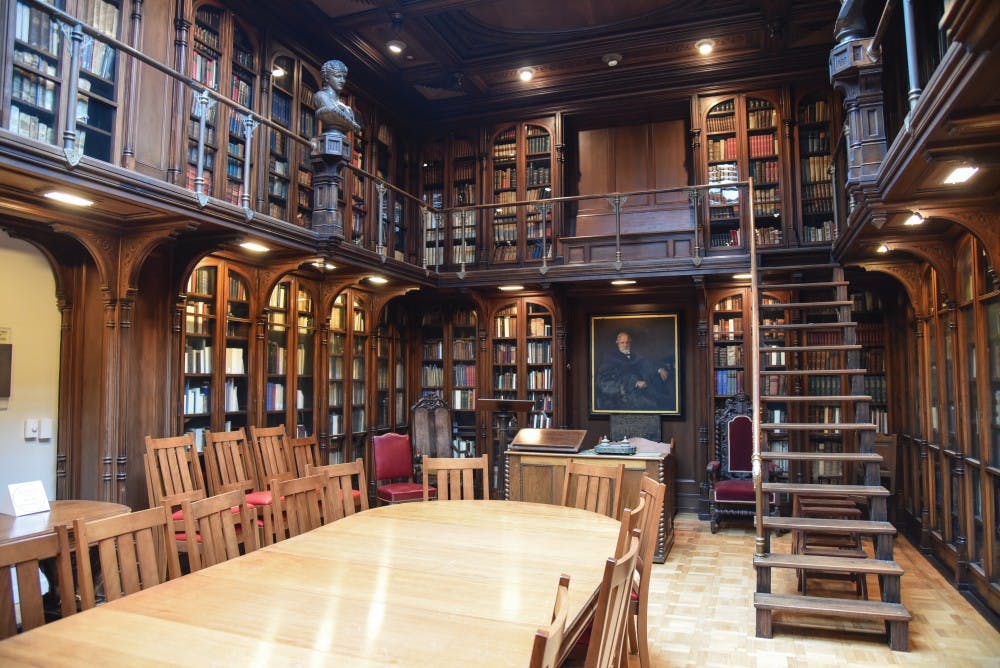Penn Libraries received a grant to preserve Muslim manuscripts and make them more accessible to the students, scholars, and the public.
Penn will collaborate with Columbia University and the Free Library of Philadelphia Foundation in the next three years to digitize Arabic, Persian, and Turkish texts through a full-time cataloger.
“This is basically a project to digitize all of the early manuscripts relating to the Muslim world held in Philadelphia as well as those at Columbia University in New York,” said Mitch Fraas, curator of the Special Collections and Kislak Center for Special Collections and Rare Books and Manuscripts of the University of Pennsylvania Libraries.
This project is part of the innovative program Cataloging Hidden Special Collections and Archives, which includes two other grants dedicated to preserving records.
The second grant plans to digitize the University's numerous records and papers of Marian Anderson, a famous 20th-century singer and social advocate from Philadelphia, and the third grant will preserve documentation of Philadelphia's early religious congregations to study how different faiths collaborated during America's founding.
“By collaborating with our peers in Philadelphia and across the country, we will be providing the world with access to unique and inspiring collections,” Kislak Center Director William Noel said to Penn News.
Since the majority of the manuscripts and paintings in the project are unavailable to scholars and library programs, Free Library of Philadelphia Curator in the Rare Book Department Caitlin Goodman said in an email that she is “excited to be shining a light on these amazing materials and making it possible for people to access them even if they are far from Philadelphia.”
For professors teaching Islamic history or culture, the digitization is already influencing their lesson plans. Jamal J. Elias, Walter H. Annenberg Professor in the Humanities and Chairperson of the Department of Religious Studies, said in an email that he plans to use the digitized manuscript collection in some of his advanced seminars.
RELATED:
What could Penn lose under Trump's proposal to cut the National Endowment for the Humanities
Penn Libraries donate books to local elementary schools with 'A Book a Day' initiative
He said the digitized collection makes classes easier to teach because “one does not have to physically sit with the manuscript unless one is specifically interested in its materiality."
“It enables students to consult it on their own schedule, so it can be used in assignments much more easily," Elias added.
All projects are funded by the Council on Library and Information Resources and the Andrew W. Mellon Foundation. OPENN, a Penn Libraries’ digital platform, will host the openly-published cultural resources from these grants.
Elias said the digitization helps preserve global rare manuscripts that are at risk either because “they are not stored in climatically controlled environments” or because they risk “being destroyed, lost or stolen because of war or other disasters.”
To Fraas, this project may even mark a start to collaborate with foreign universities to digitize sources even further.
“I am especially excited to get scholars from foreign universities interested in our manuscripts,” said Fraas. “So I would love to talk to folks from universities in the Middle East and South Asia and Southeast Asia that have interesting content.”



